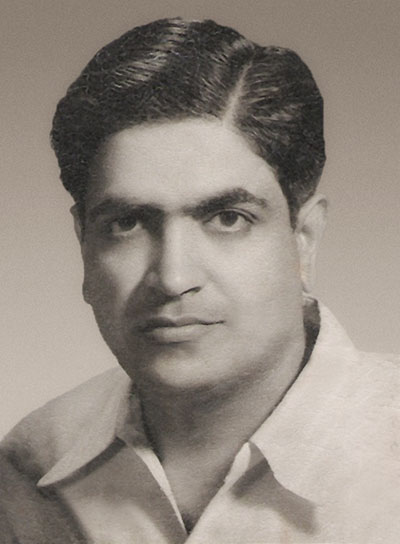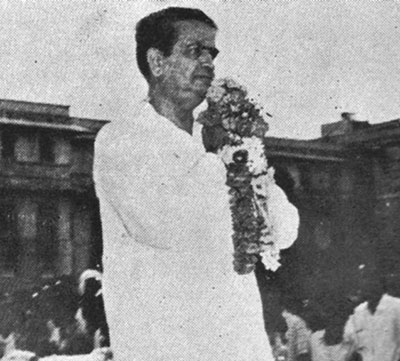Meeting Bajaj Family

After returning from Bombay, he started working as an active activist in the freedom struggle in the proximity and leadership of Loknayak Maniklal Verma. For the liveligood of the family, Indubala began to work as a teacher in a school in Dhanmandi. Shri Sukhaadia soon became active in the 'Rajputana Provincial Sabha', the branch of the All India Indigenous state Public Council. He participated in the meetings as chief activist of Mewar State Division. In those days, almost every other third month, there were meetings of the Managing Committee of the Rajputana Provincial assembly in some state.
In these meetings, the delegates from various states give their suggestions for the problems of their respective areas and the details of injustice, torture and atrocities on the part of the king and their redressal. In these meetings all the representatives were impressed by Shri Sukhadia, who was giving eloquent speeches along with useful and practical suggestions. Public meetings were also held on some occasions. In these meetings, Shri Sukhadia, who spoke in a rational and soulful style, was bound to impress all the listeners. Because of his hard work, understanding and unwavering commitment to the freedom struggle, he soon became famous as the son of Shri Maniklal Verma.
When Mahatma Gandhi, in 1942, gave the slogan "do or Die", "end the autocratic rule", "quit the British India",The economic condition of the family was not good. Mrs. Sukhaadia was always in a state of economic distress in the family due to the low salary received from the job. Despite of his precarious family position, Mr. Sukhadia took part in the Quit India movement as a result of which the Mewar state government put him in jail. The then oppressive government wanted to separate Mr. Sukhadia from this agitation, so the government operatives approached Mrs. Indubala, but she rejected every temptation of the state Government, taking the duty of a patriotic patriot. She met Mr. Sukhaadia in jail and said, "I should not have any weakness in you. Even though you have caught the path of walking on thorns, nevertheless, if you have to hang on to the execution of the resolution to liberate the country from the shackles of slavery, do not step back."
Shortly after Mr. Sukhadia was released from jail, a severe flood occurred in 1943. Hundreds of villages near Bhilwara, Gulabpura, Vijaynagar, etc., were flooded with flood water. Thousands of families became homeless. Hundreds of activists of Shri Susadia Pramandal were engaged in relief to flood victims.
Managing the Literary Conference
The session of All India Hindi Literature Conference was held at Udaipur in 1944. Sukhadia was also responsibility of the arrangements of conference. The skills, diligence and planned manner in which he successfully concluded the event was appreciated by all.
The All India Indigenous state Public Council convention was concluded at Udaipur from 31st December, 1945 to 2nd January, 1946. Top leaders like Shri Jawaharlal Nehru, Sheikh Abdurlah, Ravi Shankar Shukla, Parshottam das Tandon participated. He climbed into the eyes of all these top leaders because he played a major role in organising the Convention efficiently.

In the three-four years before the Quit India movement, Mr. Sukadia made a public awareness and public interaction in all the areas of Mewar state, particularly in the Adivasi regions, and Shri Maniklal Verma was impressed. Mr. Sukhadia stood up to Verma's expectations and became a major contributor to the past.
In those days Mr. Sukhadia, a longtime colleague Girdhari Lal Sharma wrote a article about him in the following words: " when the chains of dual and triple slavery were chained on the people of rajasthan, how could a person like Sukhadiaji's can be silent. He resolved to awaken the tribals by walking in the jungles, mountain-hills and rugged trails. He and his partner Roshanlal Sharma went from village to village, to each house. At times, when the people didn’t provide shelter to them in the house because of the landlord, they slept on the chourahas and in night used to make aware of the hardships of suffering, exploited and insufferable practices for centuries together. For the development of tribals, they have made several specific schemes and tried to implement them. Their actions were greatly disturbed by the then Mewar government.